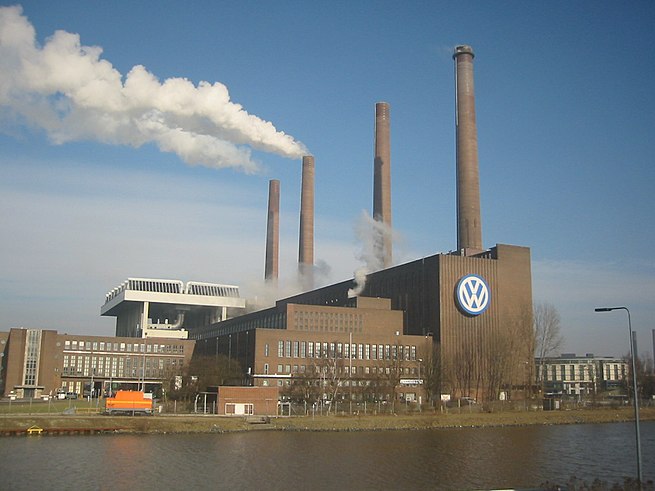
Main Difference
The main difference between Industry and Factory is that the Industry is a production of goods or service of a given field within an economy and Factory is a facility where goods are made, or processed
-
Industry
An industry is the production of goods or related services within an economy. The major source of revenue of a group or company is the indicator of its relevant industry. When a large group has multiple sources of revenue generation, it is considered to be working in different industries. Manufacturing industry became a key sector of production and labour in European and North American countries during the Industrial Revolution, upsetting previous mercantile and feudal economies. This came through many successive rapid advances in technology, such as the production of steel and coal.
Following the Industrial Revolution, possibly a third of the economic output comes from manufacturing industries. Many developed countries and many developing/semi-developed countries (China, India etc.) depend significantly on manufacturing industry.
-
Factory
A factory, manufacturing plant or a production plant is an industrial site, usually consisting of buildings and machinery, or more commonly a complex having several buildings, where workers manufacture goods or operate machines processing one product into another.
Factories arose with the introduction of machinery during the Industrial Revolution when the capital and space requirements became too great for cottage industry or workshops. Early factories that contained small amounts of machinery, such as one or two spinning mules, and fewer than a dozen workers have been called “glorified workshops”.Most modern factories have large warehouses or warehouse-like facilities that contain heavy equipment used for assembly line production. Large factories tend to be located with access to multiple modes of transportation, with some having rail, highway and water loading and unloading facilities.
Factories may either make discrete products or some type of material continuously produced such as chemicals, pulp and paper, or refined oil products. Factories manufacturing chemicals are often called plants and may have most of their equipment – tanks, pressure vessels, chemical reactors, pumps and piping – outdoors and operated from control rooms. Oil refineries have most of their equipment outdoors.
Discrete products may be final consumer goods, or parts and sub-assemblies which are made into final products elsewhere. Factories may be supplied parts from elsewhere or make them from raw materials. Continuous production industries typically use heat or electricity to transform streams of raw materials into finished products.
The term mill originally referred to the milling of grain, which usually used natural resources such as water or wind power until those were displaced by steam power in the 19th century. Because many processes like spinning and weaving, iron rolling, and paper manufacturing were originally powered by water, the term survives as in steel mill, paper mill, etc.
-
Industry (noun)
The tendency to work persistently. Diligence.
“Over the years, their industry and business sense made them wealthy.”
-
Industry (noun)
Businesses of the same type, considered as a whole. Trade.
“The software and tourism industries continue to grow, while the steel industry remains troubled.”
“The steel industry has long used blast furnaces to smelt iron.”
-
Industry (noun)
Businesses that produce goods as opposed to services.
-
Industry (noun)
The sector of the economy consisting of large-scale enterprises.
“There used to be a lot of industry around here, but now the economy depends on tourism.”
-
Industry (noun)
Automated production of material goods{{cite-web
-
Industry (noun)
A typological classification of stone tools, associated with a technocomplex.
-
Factory (noun)
A trading establishment, especially set up by merchants working in a foreign country.
-
Factory (noun)
The position or state of being a factor.
-
Factory (noun)
A manufacturing takes place.
-
Factory (noun)
A device which produces or manufactures something.
-
Factory (noun)
In a computer program or library, a function, method, etc. which creates an object.
-
Factory (adjective)
Having come from the factory in the state it is currently in; original, stock.
“See how there’s another layer of metal there? That’s not factory.”
-
Industry (noun)
economic activity concerned with the processing of raw materials and manufacture of goods in factories
“new investment incentives for British industry”
-
Industry (noun)
a particular form or branch of economic or commercial activity
“the car industry”
-
Industry (noun)
an activity or domain in which a great deal of effort is expended
“the Shakespeare industry”
-
Industry (noun)
hard work
“the kitchen became a hive of industry”
